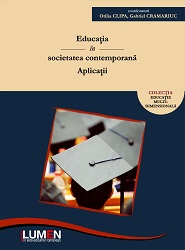Everyday Life of Education and Welfare Institutions.
Selected Research Methods
Everyday Life of Education and Welfare Institutions.
Selected Research Methods
Author(s): Beata Zięba-Kołodziej
Subject(s): Social Sciences
Published by: Editura Lumen, Asociatia Lumen
Keywords: Everyday life; uncommonness; qualitative research; quantitative research; organization; institution; ethnography; grounded theory; “compact description”; phenomenology; symbolic interactionism
Summary/Abstract: The article deals with issues of educational institutions functioning. The author presents possible ways to study everyday life of educational and welfare institutions, but it can also refer to a number of other institutions and organizations - connected with various areas of human activity. Thorough comparison of the concept of “everyday life” meanings and interpretations are given. It is stated that in the Polish study of education the topic of everyday life rarely appears. Institutions are viewed as an integral part of social reality that's why institutions are interpreted to be not stiff, lifeless buildings with a sign on the outside, but a living organism, a part of a much wider system. Grounded theory as one of the paradigms of field research, close to humanist approach is used in the given study. The author comes to conclusion that both grounded and ethnography theories can be successfully used to study everyday life in educational institutions and welfare centers or other because they allow to know the specifics of place and noticing phenomena impossible to capture with a quantitative study.
Book: Educatia in Societatea Contemporana. Aplicatii
- Page Range: 249-256
- Page Count: 8
- Publication Year: 2015
- Language: English
- Content File-PDF

